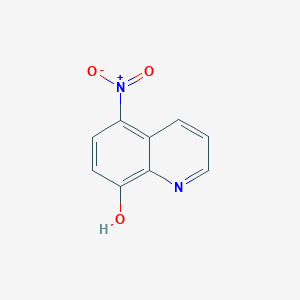CSPC new drug! J & J erlada and ADT can reduce the risk of pfs2!
-
Last Update: 2020-02-18
-
Source: Internet
-
Author: User
Search more information of high quality chemicals, good prices and reliable suppliers, visit
www.echemi.com
Recently, a new study released at the 2020 American Society of clinical oncology urogenital cancer symposium (ASCO-GU 2020) held in San Francisco showed that in patients with metastatic castration sensitive prostate cancer (mscspc), erlada (ansenko), a new prostate cancer drug Apalatamine combined with androgen deprivation therapy (ADT) reduces the risk of second disease progression or death (pfs2) and has nothing to do with hormone or paclitaxel therapy as the first follow-up life prolongation therapy The findings come from an after the fact analysis of the phase III Titan study In this analysis, the second progression free survival (pfs2) of patients in the Titan study was evaluated based on the first follow-up life prolongation therapy after the study treatment The data was presented at the meeting by neeraj Agarwal, MD, Huntsman cancer center, University of Utah The data showed that the pfs2 data of erlada + ADT was better than that of placebo + ADT (HR = 0.66; 95% CI: 0.50-0.87; P = 0.0026) The significant advantages of erlada were the same whether the patients received hormone therapy (HR = 0.684; 95% CI: 0.482-0.971; P = 0.0326) or paclitaxel therapy (HR = 0.634; 95% CI: 0.456-0.881; P = 0.0062) as the first follow-up therapy In each follow-up group, the median pfs2 of erlada or placebo was not achieved "The benefits of pfs2 are an indicator of effective early enhancement of treatment, consistent with the overall survival (OS) benefits generated by erlada, and together show the integrity of the treatment trajectory," neeraj Agarwal said Titan is a randomized, placebo-controlled, double-blind study in patients with mscspc, regardless of the degree of disease or previous history of docetaxel treatment A total of 1050 patients with intention to treat (ITT) were enrolled in the study, including patients with low volume and high volume diseases, newly diagnosed patients, patients who had previously received definitive local therapy or who had received up to six cycles of docetaxel or up to six months of ADT for treatment of mscspc These patients were randomly assigned to receive erlada + ADT (n = 525) or placebo + ADT (n = 527) until the disease progressed or unacceptable treatment-related toxicity or treatment ended The main results of the Titan study, published in the New England Journal of Medicine (NEJM), showed that erlada + ADT reduced the risk of death by 33% compared to placebo + ADT After a median follow-up of 22.7 months, the 2-year OS rate was 82.4% in erlada + ADT group and 73.5% in placebo + ADT group (HR = 0.67; 95% CI: 0.51-0.89; P = 0.005) 2 group median OS not reached Erlada + ADT also significantly reduced the risk of radiologic progression or death by 52% compared to placebo + ADT Based on these main results, the US FDA approved erlada combined with ADT in September 2019 for the treatment of metastatic castration sensitive prostate cancer (mscspc) According to the post event analysis published at the meeting, pfs2 was defined as: during the first follow-up treatment of prostate cancer, from the beginning of study randomization to the time when researchers determined the first occurrence of disease progression or death due to any reason, whichever occurs first This analysis examined all the other first follow-up systematic therapies A total of 277 patients received follow-up systemic therapy, 87 from the erlada + ADT group and 190 from the placebo + ADT group As the first follow-up therapy, the new hormone therapy (NHT) was used by 24 patients in erlada group and 62 patients in placebo group Paclitaxel was used as the first follow-up therapy in 30 patients in the erlada group and 69 patients in the placebo group Baseline demographic and disease characteristics were similar in the hormone group and paclitaxel group, including ECoG physical performance score, Gleason score at initial diagnosis, metastasis stage at diagnosis and median prostate-specific antigen level at baseline Before entering the Titan study, patients who had received docetaxel treatment in castrated sensitive diseases were more likely to receive new hormone therapy (NHT) than taxane as their first follow-up therapy (20.9% vs 8.1%) Neeraj Agarwal pointed out that the choice of follow-up therapy was not random, but was chosen by the attending physician according to the characteristics of patients and diseases This is a limiting factor A small number of pfs2 events and nonrandomized treatment decisions for follow-up treatment excluded the determination of the best follow-up treatment based on these data Data need to be further improved for further in-depth analysis Dana rathkopf, M.D., a discussant and director of prostate cancer clinical research at slonketlin cancer center, also noted that there were too few pfs2 events in the hormone group (19.5%) and taxane group (22.4%) in the analysis In addition, the imbalance in the proportion of patients who received docetaxel in the erlada group and placebo group (33% vs 16%) may also affect the results Therefore, these data need to be interpreted carefully Due to the small number of events, further evaluation is needed to assess the full impact of follow-up therapy on pfs2 time Erlada is a new generation of androgen receptor (AR) inhibitors, which can help block the activity of androgens (such as testosterone) and delay the progress of the disease In the United States, erlada was first approved by FDA in February 2018 for the treatment of adult patients with nmcrpc with high risk of metastasis This approval makes erlada the first drug to treat nmcrpc in the world In September 2019, the FDA approved a new indication for erlada to treat patients with metastatic castration sensitive prostate cancer (mscspc) In China, erlada (ansenko) obtained accelerated approval in September 2019 for the treatment of adult nmcrpc patients with high risk of metastasis In May 2019, the drug review center (CDE) of the State Drug Administration awarded ansenko ® the "priority review" qualification due to its obvious clinical advantages, and included ansenko in the second batch of clinically urgent overseas new drugs list Ansenko is the first approved nmcrpc treatment scheme in China, and it is also another innovative solution brought by Xi'an Janssen to the field of prostate cancer in China after Zeke Previously, Zeke was approved in 2015 and 2018 for use in combination with prednisone or prednisolone to treat patients with mcrpc and newly diagnosed high-risk patients with mscspc The business prospect of erleada is very promising According to the forecast report issued by evaluatepharma, a pharmaceutical market research organization, erleada's global sales volume in 2024 is expected to reach 2.115 billion US dollars.
This article is an English version of an article which is originally in the Chinese language on echemi.com and is provided for information purposes only.
This website makes no representation or warranty of any kind, either expressed or implied, as to the accuracy, completeness ownership or reliability of
the article or any translations thereof. If you have any concerns or complaints relating to the article, please send an email, providing a detailed
description of the concern or complaint, to
service@echemi.com. A staff member will contact you within 5 working days. Once verified, infringing content
will be removed immediately.







